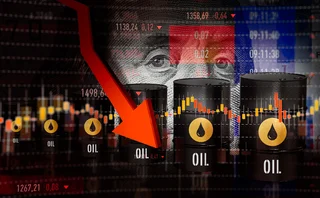Statoil buys Hydro’s oil and gas assets
The new company will have a combined production of 1.9 million barrels per day in 2007 and proven oil and gas reserves of 6.3 billion barrels of oil equivalents. Hydro will continue as a global aluminium-focused company.
“By combining forces, the new company will be a highly competent and financially strong Norwegian-based energy champion,” says a joint statement from Jan Reinås and Jannik Lindbæk, chairmen of the board of directors of Hydro and Statoil respectively. “The industry faces an increasingly challenging international landscape. To merge now makes perfect sense.”
Hydro’s shareholders will hold 32.7% and Statoil’s shareholders will hold 67.3 % of the new company, while the Norwegian State will hold approximately 62.5% in the merged entity. Final closing of the deal is expected to be in the third quarter 2007. In the meantime, Hydro and Statoil will be managed as separate companies. A new name for the merged company will be selected as part of the integration process.
“This merger comes at a time when both companies were undervalued,” says Christine Tiscareno, integrated oil & gas analyst at Standard & Poor's Equity Research. “Combining a high potential discovery area (Statoil) with knowledge of data interpretation and exploration expertise in the Gulf of Mexico (Norsk Hydro) is a win-win situation.”
Standard & Poor's Equity Research believes the merger was instigated due to the severe lack of global operating resources in the sector, from materials to equipment and personnel.
More on Oil & refined products
Energy Risk reaction: Venezuela and oil sanctions
Energy Risk talks to Rob McLeod at Hartree Partners about the energy risk implications of the US’s control of Venezuelan oil
Energy Risk Europe Leaders’ Network: geopolitical risk
Energy Risk’s European Leaders’ Network had its first meeting in November to discuss the risks posed to energy firms by recent geopolitical developments
US shutdown leaves commodity traders without key data
Commodity traders are ‘flying blind’ without Commitment of Traders reports
Energy Risk at 30: Learning from the past
Energy Risk looks back at the seminal events and developments that have shaped today’s energy markets
Why Iran tensions failed to rattle markets
Despite initial fears, traders say risks were signposted and investors had deleveraged after April
Oil and products house of the year: Macquarie Group
Energy Risk Awards: Bank pioneers innovative deals in illiquid markets, taking on esoteric risk
Podcast: should negative oil prices be allowed?
Did negative oil prices signify the market was operating effectively, or that something was wrong?
Podcast: the future of retail investment in oil
Will negative prices and big losses curb retail investors’ appetite for oil futures over the longer term?







